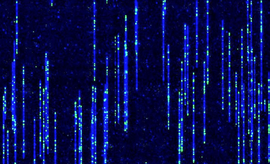HRAS is a therapeutic target in malignant chemo-resistant adenomyoepithelioma of the breast
AbstractMalignant adenomyoepithelioma (AME) of the breast is an exceptionally rare form of breast cancer, with a significant metastatic potential. Chemotherapy has been used in the management of advanced AME patients, however the majority of treatments are not effective. Recent studies report recurrent mutations in the HRAS Q61 hotspot in small series of AMEs, but there are no preclinical or clinical data showing H-Ras protein as a potential therapeutic target in malignant AMEs. We performed targeted sequencing of tumours’ samples from new series of 13 AMEs, including 9 benign and 4 malignant forms. Samples from the breast tumour and the matched axillary metastasis of one malignant HRAS mutated AME were engrafted and two patient-derived xenografts (PDX) were established that reproduced the typical AME morphology. The metastasis-derived PDX was treated in vivo by different chemotherapies and a combination of MEK and BRAF inhibitors (trametinib and dabrafenib). All malignant AMEs presented a recurrent mutation in the HRAS G13R or G12S hotspot. Mutation of PIK3CA were found in both benign and malignant AMEs, while AKT1 mutations were restricted to benign AMEs. Treatment of the PDX by the MEK inhibitor trametinib, resulted in a marked anti-tumor activity, in contrast to the BRAF inhibitor and the different chemotherapies that were ineffective. Overall, these findings further expand on the genetic features of AMEs and suggest that patients carrying advanced HRAS-mutated AMEs could potentially be treated with MEK inhibitors.

